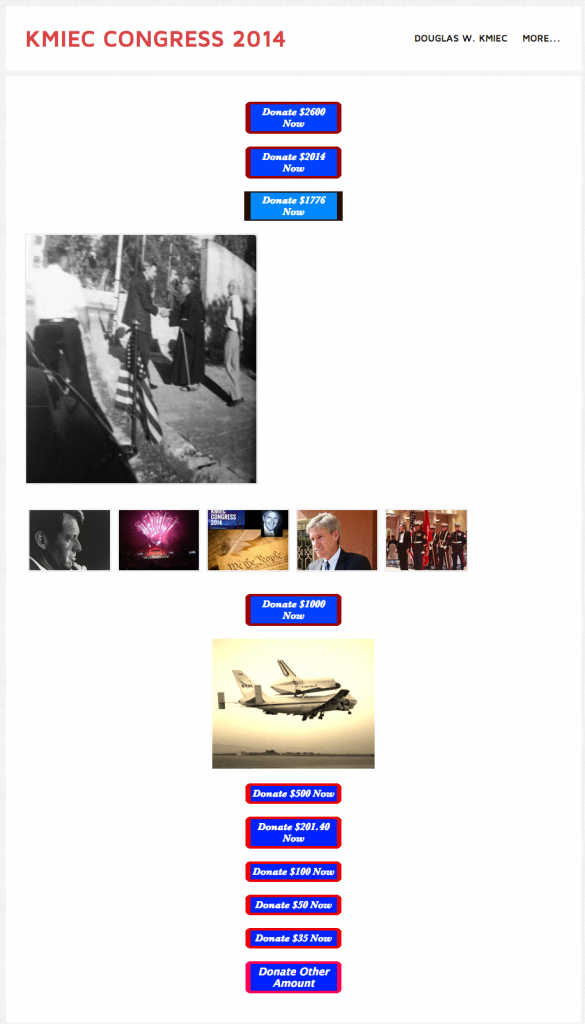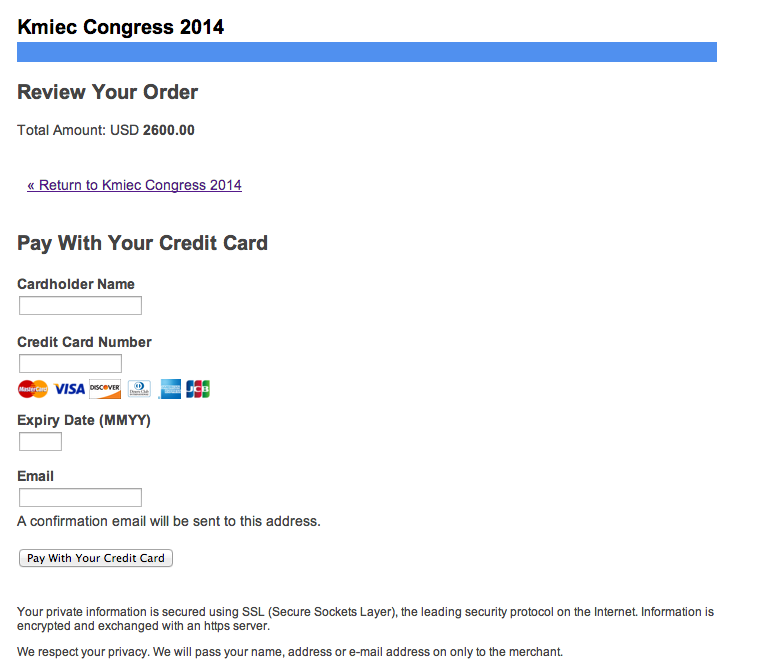I’m not an expert on campaign finance laws, but I’m pretty sure someone running for Congress is required to obtain a whole host of information about the donor, including who they work for, and provide special language about the compliance of the donation. None of this information appears on Doug Kmiec’s campaign page, which is seeking donations of $35, $50, $100, $201.40, $500, $1776, $2014, and $2600. As far as I can tell, contributions can be made by foreign nationals, corporations, or anyone else. And the page requesting credit card information does not ask for any of the required information. The payment page is hosted by FirstData, which does not appear to be a program set up for campaign donations, but rather regular commercial transactions.
I should note that one of Kmiec’s planks indirectly criticizes Citizens United.
The Supreme Court deserves our respect when it honors the Constitution, but not when it finds it easier to fabricate gun and corporate rights than to respect life and democracy.
Screen shots are below.
Update: The campaign page has been updated, and seems to request hosts of information, though it is not a form that allows you to submit information. It is just listed as text.
Brad Smith offers this commment:
This has now been corrected on their page. But in doing so, they’ve added this:
“We do not accept corporate monies, even as they have been erroneously permitted by a slight majority of the Supreme Court in citizens United overruling close to 100 years of precedent.”
Here, they share many common misconceptions of Citizens United v. FEC. “Corporate monies” may not be contributed candidate campaigns. And if by “precedent” they mean Supreme Court precedent, the oldest case overruled by Citizens United was Austin v. Michigan Chamber of Commerce, a case from 1990. 20 years of precedent isn’t, in most people’s books, even close to 100 years of precedent. Austin itself did not explicitly overrule, but is widely understood as disharmonious with earlier Supreme Court decisions, including Buckley v. Valeo (1976, Congress may not limit campaign expenditures) and First National Bank of Boston v. Bellotti (1978, right to make expenditures extends to corporations in initiative campaign).
It is also ironic that these plucky volunteers think this is a big deal, since they live in California where corporate contributions ARE allowed in state races.
Beyond that, I note that the campaign prides itself on being an “all-volunteer” effort and notes that it has no salaried personnel. That should be a source of pride. Unfortunately, in today’s world of campaign finance regulation, it is also pretty difficult to do, which is why you make mistakes like not requesting legally required information.
As an admirer of Doug Kmiec, I wish them luck. I suspect that by the end of the campaign these doughty volunteers will have concluded, as so many similarly situated, idealistic efforts before them have, that the campaign finance regulation they think they like now is really part of the problem, not the solution, and part of what prevents, not facilitates, campaigns like this one.
Here is a screenshot:


